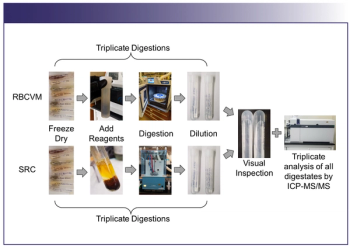
- The Application Notebook 09-01-2020
- Volume 35
- Issue 9
Material Identification
Material identification, also called positive material identification (PMI), is used to analyze and identify materials for quality assurance and quality control to verify proper alloy or material is being used.
Material Identification for standard ASTM and JIS alloy tables and user-definable custom identification tables is enabled by Rigaku Material Identification software.
Material identification, also called positive material identification (PMI), is used to analyze and identify materials for quality assurance and quality control to verify proper alloy or material is being used. Material identification can also be used to quickly sort unknown alloys and other materials, including powders and liquids. It is also used in industrial forensics and failure material analysis identification. By looking at the structure of the elemental constituents in a sample, material identification verifies material type by comparing differences in composition that define the specific types of materials being analyzed. X-ray fluorescence (XRF) offers a non-destructive means for material identification.
Experimental Conditions
Energy dispersive X-ray fluorescence (EDXRF) systems from Applied Rigaku Technologies offer the standard alloy identification tables as well as the capability for the user to create a custom table defined for any material where the types of materials can be differentiated by differences in element composition. The ASTM and JIS standard alloy tables for ferrous, aluminum, and copper alloys are included.
Rigaku Material Identification software allows the user to create and define a custom identification table for any material where the types of the material are differentiated by elemental composition. For example, for an identification for sorting unusual auto cats, the material types and criteria for differentiating are determined by the user to best fit the specific needs at the facility.
The user creates a new standard table, defines the category, and lists the major elements in the material that are used to differentiate the various material types. Next, the types of material are listed and the elemental limits that define the differences among each type are entered.
Conclusion
Rigaku Material Identification software gives the user a tool for alloy PMI as well the ability to create custom identification tables for material verification and sorting applications.
Applied Rigaku Technologies, Inc.
9825 Spectrum Drive, Bldg. 4, Suite 475, Austin, TX 78717
tel. (+1) 512-225-1796
Website:
Articles in this issue
over 5 years ago
How Does Concatenation Enhance Raman Spectroscopy?over 5 years ago
Polarization in FT-IR ATRover 5 years ago
TMD Layer Characterization with Raman and RISE MicroscopyNewsletter
Get essential updates on the latest spectroscopy technologies, regulatory standards, and best practices—subscribe today to Spectroscopy.




